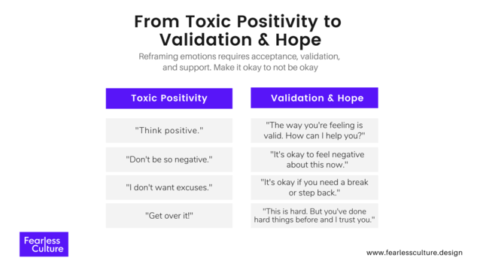Over the past four decades of my experience treating patients, I have seen how many people trust in impossible outcomes, even when they don’t happen. Regardless of their disappointments, they believe their next chance at success will be better.
One of the most popular of these deeply-rooted, irrational fantasies about true love is that it should be unconditional. If people are devoted to each other and show undying love, they can be sure that fondness won’t require compromises and that all their needs will be met. Forgiveness will also be a way of healing all past mistakes.
It may seem this way in the beginning months of many relationships. It can seem like neither partner can disappoint the other or turn away during this “honeymoon” period. People who are newly in love tend to view one another as symbolic, forever-beloved children who will always be at the center of their lives.
But that is not how genuine relationships work. The initial months of unreserved generosity and devotion quickly gave way to new needs that were not apparent when the relationship was fresh. Both partners rapidly realize their initial passion and excitement are fading and that many of their needs will need to be met. They will also have to compromise some of their needs to maintain the relationship.
A successful relationship requires compromise
Surprisingly, many people who share their beliefs with me know that unconditional love is a myth. They readily confess that they have never experienced unconditional love, and I ask them if this is true. Although childhood is often regarded as the best time to share unconditional love, most people realize that they must behave in specific ways to keep their parents’ trust and approval. When faced with the reality of their friendship’s success, lifelong friends will realize that their trust is built upon making compromises to keep their faith.
These reasonable expectations are something that only some people can predict when they start a relationship. They expect their relationships to be free from these predictable compromises and become disillusioned when their partners ask for more or less.
Partners in a relationship must recognize that compromise is part of any successful partnership. This should be done as soon as possible. They will be more inclined to feel appreciated for their sacrifices and acknowledge the benefits they receive in return. This will help to prevent them from becoming bitter and degrading the potential relationship.
These are the things about how to talk about compromise with a partner:
To identify and make compromises, what key elements must be recognized by relationship partners? And what gifts can be given easily without resentment? How can they communicate their thoughts and feelings early in a relationship?
THE BASICS
These guidelines might be helpful:
Do this exercise even if you’re not currently in a relationship. If you are currently in a relationship, you can ask your partner for the same four steps. The first two steps are about creating willing sacrifices. The second two refer to appreciated gifts.
Step 1: List how you are willing to sacrifice your needs to have a healthy relationship.
Step 2: Create a list of behaviors you think your partner is willing to sacrifice similarly.
Step 3: Create a list of things you can easily give to your partner that you don’t regret or require reciprocity.
Essential Readings to work your Relationships
Step 4: Create a list of the things you think your partner gives you that you enjoy sharing.
Step 5: Your partner might be unable to tell when you give from your heart and when your needs are sacrificed for them. You may not even realize that your partner is doing the same. Add one of these numbers to each item to help you understand and share more clearly.
Frequency of Behavior:
- 1: Sometimes
- 2: Often
- 3: Most of all
These are examples of compromises from Step 1:
- Even though I need to resolve this, I will only have conversations with you late at night if I am tired.
- Even though I love you more, I won’t ask for it because I know how difficult it is for you.
- I would love to spend more time with you.
These are examples of compromises from Step 2 (with Frequency:2)
- Even though you might be tired, I’m allowed to sleep on weekends.
- Even if they don’t like you, you’re kind to people I care about.
- You must remember what is vital.
These are examples of appreciation from Step 3:
- I want to tell you how much I appreciate you. Frequency: 2
- You don’t have to ask me to help. I am always available to you. Frequency: 2
- I will care for your parents, even if they are struggling. Frequency: 3
These are just a few examples of Step 4 gifts:
- I like surprises. Frequency: 2
- I love it when you make me laugh. Frequency: 3
- Even if they aren’t important to you, I care about the things that matter to me. Frequency: 2
Now, share your lists with one another. Now, take the time to review what you know and what you have learned about each other that is not what you expected.

Myths of Unconditional Love
The evolution of sacrifices and gifts over time.
It is a lie to expect unconditional love. Sacrifices, gifts, and sacrifices are the reality. Couples can become more accurate, more open-minded, and more grateful when willing to let go of the illusion and accept the fact.
People change with time. This information is vital for successful couples to exchange with one another. Sometimes what may seem like a gift can become a burden at another time, and vice versa. New needs might emerge as relationships develop and become more stable or when unexpected events happen. During times of crisis, both partners may need to make further sacrifices. There may be new gifts that neither partner knew they could offer but still wanted to give.
The partners must be honest and open with each other. They must also realize that neither can be everything or everyone at once. Acceptance of these realities allows for unconditional love to be a myth. It can lead to acceptance and choice of both understandable and possible conditions. Acceptance and forgiveness are the guardians that defeat resentment and martyrdom and keep them from returning to it.










